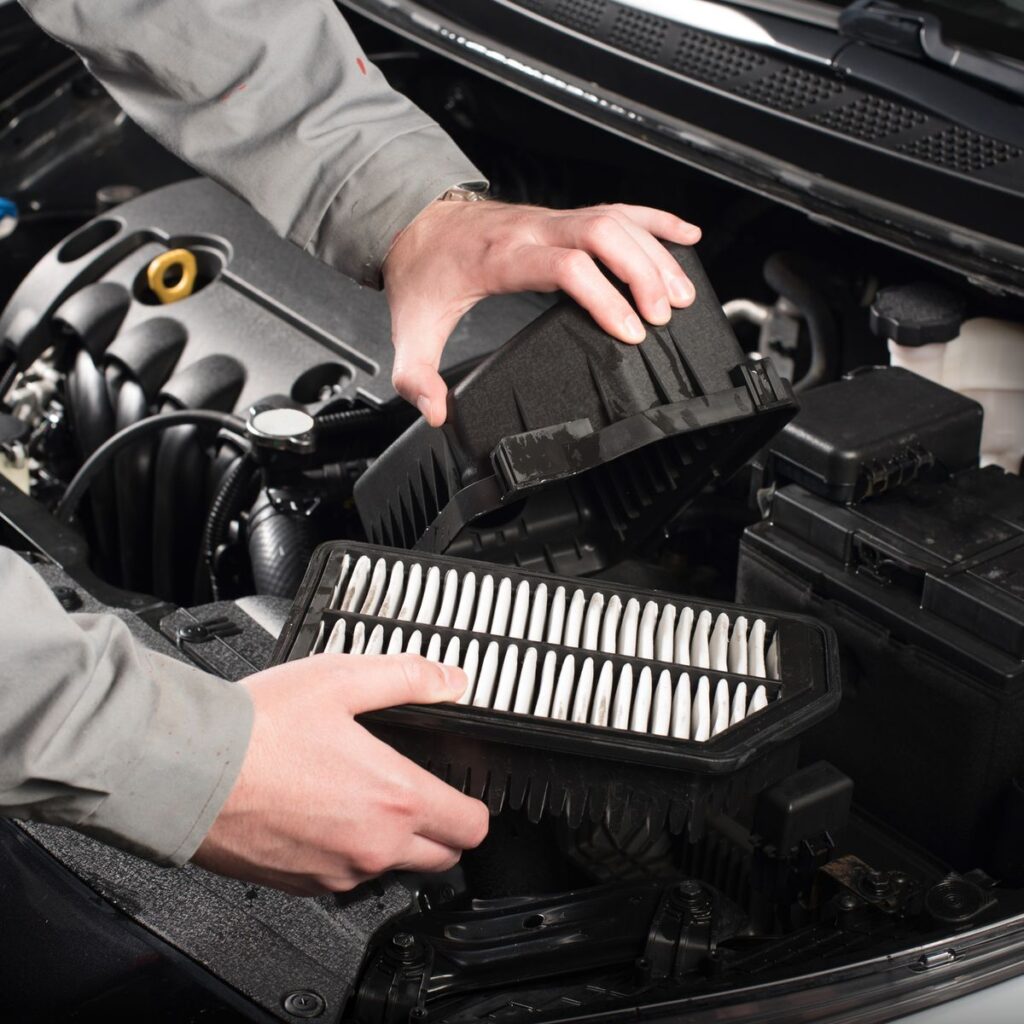
Maintaining your car’s air conditioning (AC) system is essential for ensuring a comfortable driving experience, especially during hot summer months. A well-maintained AC system not only keeps you cool but also improves your vehicle’s overall efficiency. This guide will walk you through the steps to maintain your car’s AC system, helping you avoid costly repairs and ensuring your system runs smoothly.
Understanding Your Car’s AC System
Before diving into maintenance tips, it’s helpful to understand how your car’s AC system works. The system comprises several components, including the compressor, condenser, evaporator, and refrigerant. The compressor pumps refrigerant through the system, where it absorbs and releases heat, ultimately cooling the air that flows into the cabin.
Why AC Maintenance is Important
Regular maintenance of your car’s AC system can prevent issues such as weak airflow, unpleasant odors, and insufficient cooling. Moreover, maintaining the system can extend its lifespan, improve fuel efficiency, and ensure you have a comfortable ride all year round.
Steps to Maintain Your Car’s AC System
1. Regularly Inspect and Replace the Cabin Air Filter
The cabin air filter is responsible for filtering out dust, pollen, and other particles from the air entering your vehicle. Over time, it can become clogged, reducing airflow and the AC system’s efficiency. Check your vehicle’s manual for the recommended replacement interval, typically every 15,000 to 25,000 miles. Replacing the cabin air filter is a simple task that can be done in a few minutes.

2. Run the AC Regularly
Even during the colder months, it’s important to run your AC system for at least 10 minutes once a week. This helps maintain the system’s pressure and keeps the compressor in good working condition. Regular use also helps prevent the seals from drying out and leaking.
3. Check the Refrigerant Levels
Low refrigerant levels can cause your AC to blow warm air or not work at all. You can check the refrigerant level using a pressure gauge or have it inspected by a professional. If the refrigerant is low, it’s crucial to identify and fix any leaks before recharging the system.
4. Clean the Condenser
The condenser, located in front of the radiator, can become clogged with dirt, leaves, and debris. This can restrict airflow and reduce the AC system’s efficiency. Clean the condenser regularly with a gentle stream of water to ensure it remains free of obstructions.
5. Inspect the Drive Belt
The drive belt powers the AC compressor. Over time, it can become worn or damaged, leading to poor AC performance. Inspect the belt for signs of wear, such as cracks or fraying, and replace it if necessary. Consult your vehicle’s manual for the proper tension and alignment.
6. Check for Leaks
Refrigerant leaks are a common issue in AC systems. Use a UV leak detection kit to identify any leaks in the system. If you find a leak, it’s best to have it repaired by a professional, as handling refrigerant can be hazardous.
7. Keep the Interior Clean
A clean interior helps maintain the efficiency of your AC system. Dust and debris can accumulate on the vents and reduce airflow. Regularly vacuum the interior and wipe down the vents with a damp cloth to keep the air flowing freely.
8. Service the AC System Annually
An annual service by a professional can help keep your AC system in top shape. During the service, the technician will check the refrigerant levels, inspect the components, and perform any necessary repairs or maintenance.
9. Use the Recirculation Mode
When the AC is running, use the recirculation mode to keep the cooled air inside the cabin. This reduces the load on the AC system, making it more efficient and effective in cooling the interior.
10. Monitor Unusual Noises
Unusual noises, such as rattling or hissing, can indicate a problem with your AC system. If you hear any strange sounds, have your system inspected by a professional to prevent further damage.
Common AC Problems and Solutions
Weak Airflow
Weak airflow can be caused by a clogged cabin air filter, blocked vents, or a malfunctioning blower motor. Replacing the air filter and cleaning the vents can often resolve this issue.
Unpleasant Odors
Unpleasant odors from the AC system are usually caused by mold or mildew buildup in the evaporator. Using an AC cleaner or a professional cleaning service can help eliminate the odor.
Insufficient Cooling
If your AC is not cooling effectively, it could be due to low refrigerant levels, a malfunctioning compressor, or a blocked condenser. Check the refrigerant levels and inspect the condenser for debris. If the issue persists, seek professional assistance.
DIY vs. Professional Maintenance
While many AC maintenance tasks can be done at home, some require professional expertise. DIY tasks include replacing the cabin air filter, cleaning the condenser, and checking the drive belt. For tasks like refrigerant recharging, leak repairs, and comprehensive system inspections, it’s best to consult a professional mechanic.
Benefits of Regular AC Maintenance
Regular maintenance of your car’s AC system offers several benefits, including:
- Improved Efficiency: A well-maintained AC system cools your car more effectively and uses less energy.
- Extended Lifespan: Regular maintenance can extend the life of your AC components, saving you money on repairs and replacements.
- Enhanced Comfort: A properly functioning AC system ensures a comfortable driving experience, regardless of the weather.
- Better Air Quality: Regularly replacing the cabin air filter and cleaning the vents improves the air quality inside your car.
Conclusion
Maintaining your car’s air conditioning system is essential for a comfortable and efficient ride. By following these simple maintenance steps, you can keep your AC system in top condition and avoid costly repairs. Regular inspections, cleaning, and professional servicing will ensure your system runs smoothly and keeps you cool all year round.
FAQs
How often should I replace my cabin air filter?
Typically, you should replace your cabin air filter every 15,000 to 25,000 miles. Check your vehicle’s manual for specific recommendations.
Why does my car’s AC blow warm air?
Warm air from the AC can be caused by low refrigerant levels, a faulty compressor, or a blocked condenser. Check these components and seek professional assistance if needed.
Can I recharge my car’s AC system myself?
While you can recharge the AC system yourself using a DIY kit, it’s recommended to have a professional handle it to ensure proper refrigerant levels and leak checks.
How do I know if my AC compressor is failing?
Signs of a failing AC compressor include loud noises, reduced cooling efficiency, and the AC system not turning on. If you notice these signs, have your system inspected by a professional.
What causes unpleasant odors from the AC system?
Unpleasant odors are often caused by mold or mildew buildup in the evaporator. Using an AC cleaner or having a professional clean the system can help eliminate the odor.
